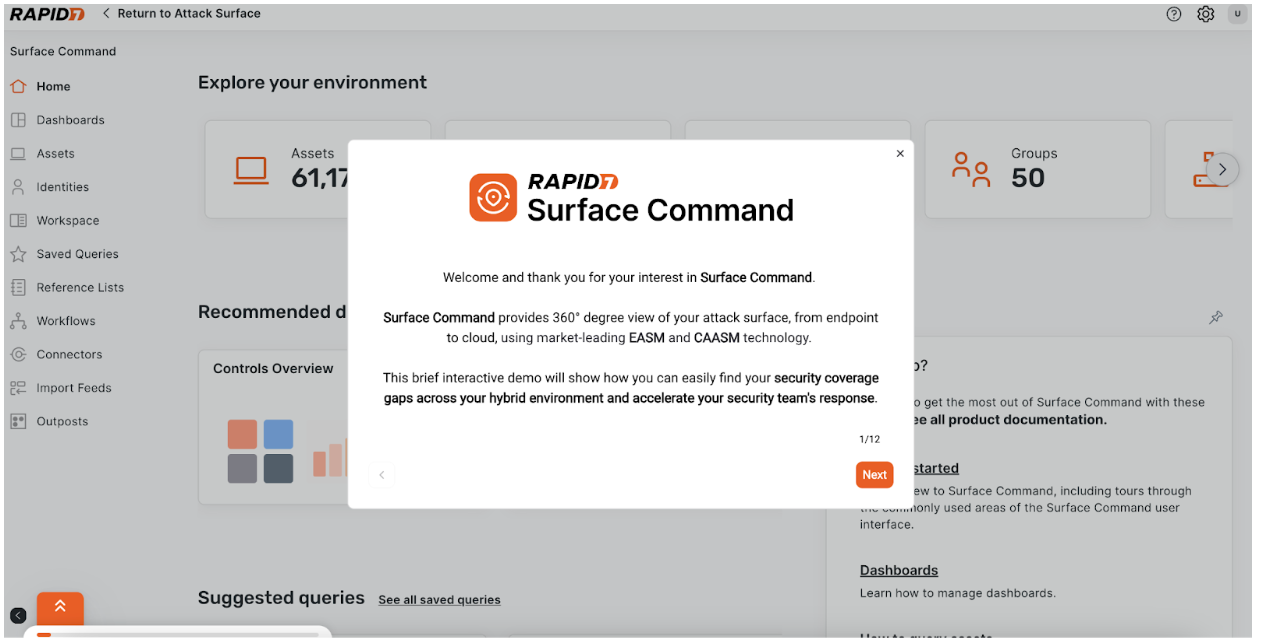“Only 17% of organizations can clearly identify and inventory a majority (95% or more) of their assets.” - Gartner
Imagine the scenario: your organization has been exposed to a new zero-day vulnerability. You are responsible for Threat & Vulnerability Management (TVM), you have asked your IT department for an assessment of the asset inventory in your organization.
You make the same request to your security team. Both teams give you a different number of assets, with a significant disparity: IT reports 10,000 assets, compared to 8,200 from your colleagues in security.
When you look up your Configuration Management Database (CMDB_ application, you quickly discover that it has not been updated for months and does not accurately represent of your attack surface either.
How do you measure your risk exposure when three sources of information are not in agreement? Your highly-skilled colleagues are now back to using spreadsheets to document your assets—a very manual and time-consuming process that is not a productive use of their time.
Attack Surface Management (ASM)
ASM covers both internal and external assets—the physical and digital assets that an organization needs to have visibility into in order to understand its security posture. By establishing visibility of the attack surface and implementing management processes to prioritize, validate, and mobilize responses, security teams can reduce exposures exploited by malicious threat actors.
“Asset inventory is a common and well-known problem for organizations.”
Manage the Gap in Asset Inventory with Surface Command
We began this blog with a real-life and anonymized example for a customer and the disparity in their asset count between IT and Security teams. Surface Command addresses this operational challenge. Firstly, Surface Command is platform-agnostic; what’s important to Rapid7 is capturing your actual number of assets using a mixture of external scanning and importing data feeds from over 100 commonly used IT and Security tools (EDR, CNAPP, VM, CMDB, etc.). This provides a true, constantly updated view of all assets across the cloud and on-premises. Assets detailed will include cloud containers, servers, workstations, IoT devices, identities, smartphones and more.
To help demonstrate the value of this complete visibility, we have created a short, 2-minute product tour, which you can view at your convenience. In this initial product tour, we show how to identify coverage gaps in your security posture using Surface Command. Take the example of a zero-day vulnerability discovered for a particular operating system; you need to understand your attack surface immediately.
Surface Command will quickly display assets missing key security controls, such as a deployed endpoint security agent. You can drill down further to focus on assets by operating system or device type. This technology is powered by Rapid7’s Machine Learning (ML) classifiers to ensure coverage and data accuracy.
Watch as we filter down from a large number of total assets, to a smaller, focused number of high-risk assets that can be prioritized for action by your IT and Security Teams, all done with just a few clicks.
This scenario is commonly used by our customers to quickly identify simple security gaps, and with Surface Command, you can easily save this for future use, as well as publish the results to reporting dashboards.
By establishing visibility of the attack surface and implementing management processes to prioritize, validate, and mobilize responses, security teams can reduce their exposure and improve cyber risk management.
After all, you can’t protect what you can’t see.

To learn more, click here.
Sources:
Gartner, Innovation Insight: Attack Surface Management - 9 April 2024 - ID G00809126
Gartner, Innovation Insight: Attack Surface Management - 9 April 2024 - ID G00809126

